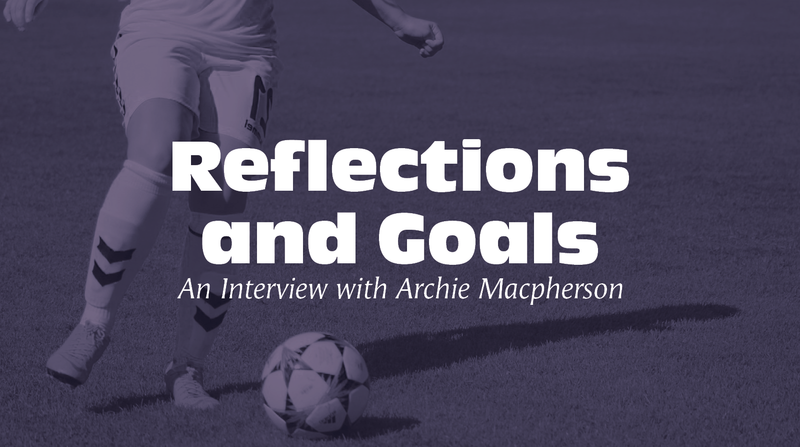Reflections and Goals
An Interview with Archie Macpherson

An Interview with Archie Macpherson
Join us as Archie Macpherson, author of It's A Goal!, takes part in our series of quick-fire Q&As!
What is a quick-fire Q&A?
We have our interviewee pick a number at random and we ask them the general question listed next to it.
Shortly after we switch to asking book-specific questions, to give you a brief insight into our wonderful writers and their books.
 What is something you take everywhere with you?
What is something you take everywhere with you?
I think my sense of guilt for everything I have got wrong in life. I think as you get older you look back over the memories and the people you got on very well with, the people you’ve collided with. In my business, being in public life with a public face, that was a hell of a lot of folk. Also, the people you got on very well with. In a sense, that’s the type of thing I carry around with me all the time. It reminds me who I am.
Where is your favourite place to write?
My favourite place to write, there’s no question. I write better when I’m walking. And then come back and put things down. Of course, because I’m writing about particular books, I’ve got to be in a setting where I’ve got access to facts and figures. But the structure, always comes and the ideas, harmony, colour, always come from walks. Any of the areas, including…we’ve a place up in Fife, including along some of the beaches like Ely and Crail itself.
 What do you think is the most difficult thing about being an author?
What do you think is the most difficult thing about being an author?
I’ve been lucky in that my work is based on history of some kind. And in that sense, it’s being able to blend what you would think is style with facts, you’ve got to get your facts right of course. Because the style is based on facts. So, the correction and going over things again is very important.
I’ve dedicated this book to Pat Woods, who’s been with me for virtually every book I’ve written (and I’ve 11 books altogether). From different publishers of course. He’s been there all the time and checked out things for me.
What is the best advice someone has ever given you?
That’s a tricky question. I’ve had a lot of advice from different kinds of people. That’s the kind of question that somebody has given you brilliant advice. You can’t quite remember what that was.
I went to an old teacher friend who the BBC had asked to give up teaching and join them full-time. I was a headmaster at the time. Do you want to be another headmaster for another 35 years? When another door has been opened for you into another way of life? I took his piece of advice.
Where is your happy place?
I’ve got a lot of happy places. I think particularly in the Scottish Highlands. I mean I love Fife, and I love the beaches, but I do like mountains.
Anywhere along the Cairngorms, especially if there is a distillery nearby. It’s natural beauty and man’s ingenuity to produce that golden liquid, dependent on the geography. I do like the Highlands.
 What was your favourite thing about writing this book?
What was your favourite thing about writing this book?
My favourite thing was going back, very far. Really going back very far. I have this capacity to think of detail, for example, the book starts in 46, when I was a kid. My short-term memory is not good. My long-term memory is fine. I was good at looking back over all these years. It gave me a great deal of enjoyment and satisfaction in being able to relive them.
What emotional reaction do you expect people to have to the book?
It should hopefully remind them of moments when they were elated or deeply saddened about the experience of watching a goal. And all the goals I’ve seen are picked out. The significant ones. The ones that I thought mattered. They certainly mattered to me.
It’s a selfish book in this sense because I selected them. I don’t care what anyone else thinks. I selected them. I’m sure there will be goals in there that people will respond to and remember.
If you were to summarise the book, what would you say?
It is about stepping stones that you take very carefully to recreate the past.
How long was this book in the works for?
Well, it was interrupted because I had a couple of illnesses, unfortunately. It was over a year. It might have been shorter than that if things hadn’t happened otherwise. I should say I’m fine now; I had two upsets during that period. So that’s it.
How did the narrative for this book come about? Why did you decide to focus solely on the goals?
Well, I discussed with Gavin about favourite goals and so on. There’s no such thing as a favourite goal. There is such a thing as a significant goal. A goal that mattered. Certainly, they mattered to me and mattered to other people. And it was just a case of selecting them. Through the years, in a kind of chronological order. And that’s how it came about.